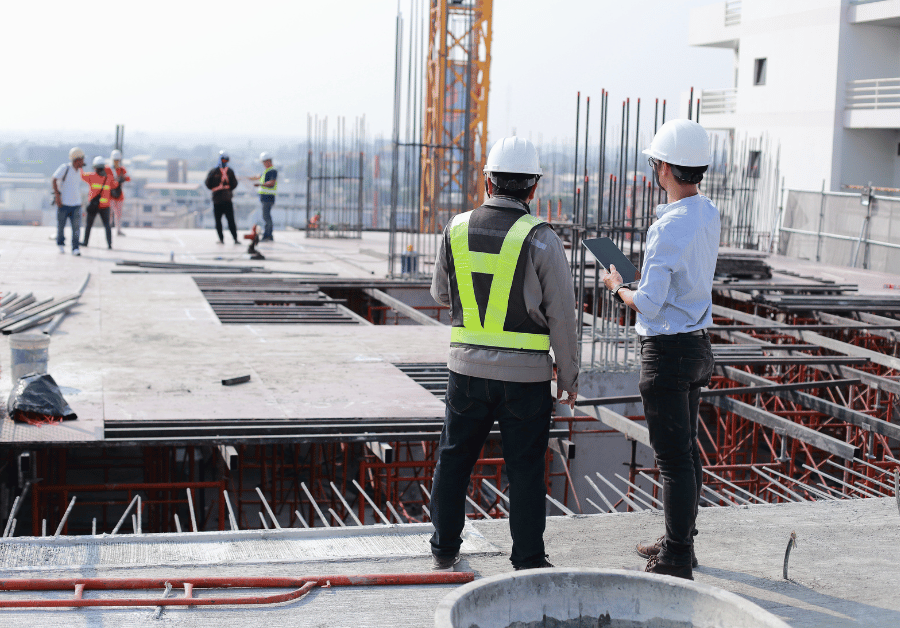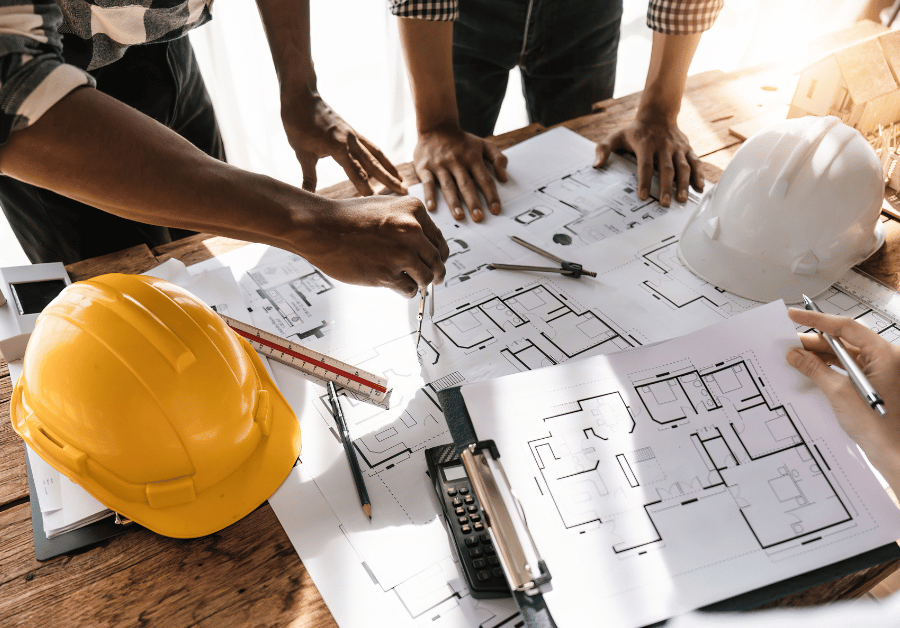Structural Engineer: Your Guide to Building Safely in Australia
Embarking on a building project, whether it's a dream home extension in Sydney, a new commercial development in Melbourne, or simply addressing some worrying cracks in your Adelaide property, can be both exciting and daunting. While architects capture your vision and builders bring it to life, there's a crucial professional working behind the scenes, ensuring everything stands strong, safe, and compliant: the structural engineer.
In Australia's diverse landscape, from the coastal challenges of Perth to the unique heritage structures of Hobart, the role of a skilled structural engineer is indispensable. They are the guardians of gravity, the experts who determine what's truly possible in building design, ensuring that every beam, column, and foundation can withstand the forces of nature and daily use. If you're looking for a reliable structural engineer in your area, platforms like Get 3 Quote connect you with trusted local service providers across Australia, including Sydney, Melbourne, Perth, Brisbane, Adelaide, and Hobart.
What Exactly Does a Structural Engineer Do? Beyond the Blueprints

A structural engineer is a highly trained professional engineer, often holding a Master of Professional Engineering or similar advanced degree in civil engineering with a specialisation in structural engineering. Their primary responsibility is the design and analysis of the 'bones' or framework of buildings and other structures. This involves calculating loads, stresses, and strains to ensure stability, durability, and safety.
Think of it this way: an architect creates the aesthetic and functional layout, but it's the structural engineer who ensures that vision can actually stand up. They work with a deep understanding of materials like concrete, steel, timber, and masonry, applying complex principles of physics and mathematics. Their design course work during their study, often at institutions like Adelaide University, provides them with the foundational knowledge to tackle challenging projects.
Key responsibilities of structural engineers include:
- Designing Foundations: Ensuring buildings are securely anchored, especially critical in areas with varying soil conditions like many parts of South Australia.
- Framing Design: Specifying the size and type of beams, columns, and walls needed to support roofs, floors, and other loads.
- Assessing Existing Structures: Investigating issues like cracks, subsidence, or water damage to determine the cause and recommend remedial solutions.
- Retrofitting and Renovations: Providing expert advice and design for modifications to existing buildings, such as adding new levels or removing load-bearing walls.
- Mitigating Natural Hazards: Designing structures to resist wind, seismic activity, and flood forces, crucial for properties in cyclone-prone Queensland or earthquake-prone regions.
- Infrastructure Projects: Beyond buildings, structural engineers are vital for bridges, tunnels, dams, and other large-scale public infrastructure.
Their work requires meticulous attention to detail and a commitment to safety, adhering to stringent Australian building codes and standards. This is why choosing a qualified and experienced structural engineer is paramount for any construction project.
When Do You Absolutely Need a Structural Engineer in Australia?
While some minor home improvements might not require a structural engineer, many projects, particularly those impacting the integrity of a building, absolutely do. Ignoring this can lead to costly repairs, safety hazards, and even legal complications. Here are common scenarios where you'll need the services of a structural engineer:
New Builds and Major Extensions
Every new home or significant extension requires a detailed structural design. This includes foundations, floor systems, roof structures, and retaining walls. A structural engineer ensures the new structure is sound and integrates seamlessly with any existing building, particularly in dense urban environments like Sydney or Melbourne where space is at a premium.
Removing or Altering Load-Bearing Walls
This is one of the most common reasons homeowners seek a structural engineer. Before knocking down an internal wall to create open-plan living, you must confirm it's not load-bearing. If it is, a structural engineer will design a suitable support system (like a steel beam) to safely redistribute the loads. This applies whether you're in a federation home in Adelaide SA or a modern apartment in Brisbane.
Significant Cracks or Building Movement
If you notice significant cracks in walls, ceilings, or foundations, or suspect your building is settling or moving, a structural engineer can diagnose the problem. They'll conduct a thorough assessment, provide a detailed report, and recommend appropriate remedial solutions. This kind of expertise is invaluable for older properties common in areas like Hobart.
Deck, Balcony, or Retaining Wall Construction
These external structures, especially if elevated or supporting earth, must be designed to withstand significant loads and environmental factors. A structural engineer ensures they are safe, compliant, and durable.
Solar Panel Installation on Older Roofs
While solar panels are great for sustainability, they add considerable weight. For older roofs, a structural engineer can assess the existing roof structure's capacity and advise on any necessary strengthening measures before installation, preventing potential damage.
Water Damage or Fire Damage Assessment
Following events like floods or fires, the integrity of a structure can be compromised. A structural engineer can assess the extent of the damage and certify the building's safety or specify necessary repairs.
Commercial and Industrial Projects
From warehouses to multi-story office blocks, these large-scale projects inherently require the expertise of structural engineers from concept to completion. Many reputable firms are structured as structural engineers Pty Ltd, offering comprehensive services.
The Structural Engineer's Toolkit: Skills and Expertise
The journey to becoming a qualified structural engineer is rigorous, involving extensive study and practical experience. Students often undertake a Bachelor of Engineering (Honours) followed by a Master of Professional Engineering, with specific course codes like ENGXC or ENGI units focusing on advanced structural design and analysis. Universities like Adelaide University offer comprehensive professional engineering programs that equip graduates with the skills required for structural engineer jobs across Australia.
Their toolkit isn't just about software and calculations; it's about a unique blend of analytical thinking, creativity, and problem-solving. They must be able to:
- Interpret Complex Data: Analysing soil reports, material properties, and environmental data.
- Apply Advanced Mathematics and Physics: Calculating forces, stresses, and deflections with precision.
- Understand Building Codes and Standards: Ensuring all design work complies with the National Construction Code (NCC) and Australian Standards.
- Communicate Effectively: Translating complex technical information into clear advice for clients, architects, and builders.
- Innovate Solutions: Finding efficient, cost-effective, and safe ways to achieve architectural visions, often requiring 'on-the-feet' thinking for quick on-site decisions.
Many structural engineers Pty Ltd firms across Australia pride themselves on providing innovative solutions, built on years of collective experience and continuous professional development. This commitment to ongoing learning ensures they remain at the forefront of the industry, delivering cutting-edge and safe designs.
Finding the Right Structural Engineer in Your City: Sydney, Melbourne, Adelaide & Beyond
Choosing the right structural engineer is a critical decision that impacts the safety, cost, and timeline of your project. Whether you're in need of Adelaide structural engineers, or a specialist for a high-rise in Brisbane, here’s what to look for:
- Qualifications and Registration: Ensure they are a certified professional engineer, ideally registered with Engineers Australia. This signifies they meet strict competency standards.
- Experience: Look for an engineer with relevant experience in projects similar to yours. A residential structural engineer will have different expertise than one specialising in large commercial projects.
- Insurance: Verify they hold professional indemnity insurance. This protects both you and the engineer in case of errors or omissions.
- Communication: A good structural engineer will communicate clearly, explain technical concepts in plain language, and be responsive to your queries.
- Local Knowledge: For areas like Adelaide SA, or specific regions in Western Australia, local knowledge of soil conditions, council regulations, and common building practices can be invaluable.
This is where platforms like Get 3 Quote simplify the process. Instead of sifting through countless individual websites or relying solely on word-of-mouth, you can easily connect with multiple structural engineers Pty Ltd firms and independent consultants who are verified local professionals. We help you find the best match for your specific needs, ensuring you get transparent quotes and access to profiles and reviews.
Understanding the Process: From Initial Consultation to Project Completion

Once you've decided to engage a structural engineer, understanding the typical process can help manage your expectations and ensure a smooth project. While exact steps may vary, a general outline includes:
1. Initial Contact and Project Brief
You’ll provide details about your project – what you need done, any existing plans, photos, or concerns. This initial discussion helps the structural engineer understand the scope and provide an accurate quote. For instance, if you’re in Adelaide and need an assessment of old cracks, be prepared with photos and any history of the issue.
2. Site Visit and Assessment
The structural engineer will typically conduct a site visit. This allows them to inspect the existing conditions, take measurements, and identify any potential challenges. They might use specialised equipment or even request soil tests, especially for new foundations.
3. Analysis and Design
Back in the office, the engineer will perform detailed calculations and analyses. Using sophisticated software, they’ll design the necessary structural elements, ensuring they meet all safety standards and regulatory requirements. This phase often involves close collaboration with your architect or builder.
4. Report and Documentation
You’ll receive a comprehensive report outlining their findings, recommendations, and the detailed structural design drawings. These documents are crucial for obtaining council approvals and for your builder to follow during construction. For significant changes, these plans often need to be stamped by a registered professional engineer.
5. Construction Phase Support
The structural engineer may provide ongoing support during the construction phase, answering questions from your builder, conducting site inspections to ensure the work is proceeding according to their design, and addressing any unforeseen issues that arise. Their proactive approach helps ensure the project is completed safely and correctly.
Why Trust Matters: The Get 3 Quote Advantage for Connecting with Structural Engineers
Finding a qualified and reliable structural engineer, especially for something as critical as your home or business premises, can be overwhelming. You want to ensure you're working with a professional who not only has the right expertise and qualifications (perhaps even a Master of Professional Engineering from a reputable university) but also understands your specific needs and local conditions.
This is where Get 3 Quote excels. Our mission is to simplify this process, connecting you with trusted local service providers across Australia. Here’s how we make it easy to find your ideal structural engineer:
- 1. Tell Us What You Need: Fill out our simple online form and describe what you need done. Whether it’s a foundation inspection in Perth, a retaining wall design in Brisbane, or a full structural assessment for a commercial property in Melbourne, we capture your requirements accurately.
- 2. Get Quotes from Professionals: We then match your needs with up to 3 detailed quotes from verified local professionals in your area. These aren't just any engineers; they are thoroughly vetted to ensure they meet our standards for quality and reliability. Many of these are established structural engineers Pty Ltd companies with a strong local presence.
- 3. Choose the Best Match: You receive the quotes, compare their profiles, read reviews from other Australian clients, and choose the structural engineer that best fits your budget, timeline, and specific project requirements. This transparency empowers you to make an informed decision with confidence.
We understand the importance of entrusting your project to competent hands. By using Get 3 Quote, you gain access to a network of structural engineers who are ready to deliver quality services, ensuring the safety and longevity of your building structures. Our platform supports both residential and commercial needs, making it easier than ever to find the right professional for any job, big or small.
Your Foundation for a Safe Future
The expertise of a structural engineer is not merely a regulatory hurdle; it's an investment in the safety, longevity, and value of your property. From new builds to crucial renovations, their role ensures that your vision is not only aesthetically pleasing but also structurally sound and compliant with Australian standards.
Don't leave the integrity of your property to chance. Whether you're in need of a structural engineer for a residential project in Adelaide SA, a commercial undertaking in Brisbane, or any building concern across Australia, Get 3 Quote is here to simplify your search. We connect you with verified local professionals ready to provide the expert services you need.
Ready to find the right structural engineer for your project?
Visit https://get3quote.com.au today to tell us what you need and get up to 3 free, no-obligation quotes from trusted local structural engineers.
